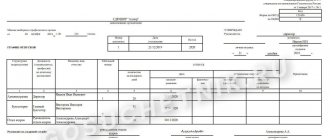Management Responsibility
The law now contains an obligation for managers to conduct medical examinations of their employees. At the same time, the organization itself must pay for such procedures. This rule applies to all examinations.
For the period while the employee is unable to perform his duties due to undergoing a medical examination by doctors, his place of work is retained and payment is made from his average earnings.
A preliminary medical examination is necessary for people who are just getting a job. Periodic examinations must be carried out by citizens for whose workplaces this is required by the conducted SOUT, or by the standards of current legislation.
An extraordinary examination can be carried out in a situation where, due to the current state of health, the worker cannot cope with his duties. The indications for this medical examination are also determined by law.
The technical specifications establish an obligation for an employee to undergo a medical examination in certain situations.
ATTENTION! If a manager ignores the requirements of the law and does not conduct medical examinations for his subordinates, he may be held administratively liable.
Responsibilities and consequences of failure to fulfill them for the employer
The organization of medical examinations and their payment should be handled exclusively by the employer. This is one of his main responsibilities.
Namely:
- Compile a list of workers who should undergo regular and preliminary inspections and send it to the authorized body of Rospotrebnadzor.
- Select a medical institution to carry out a medical examination, sign an agreement with it, agree on the timing of the examination, and send the contingent lists there.
- 10 days before the appointed date, introduce subordinates to the upcoming procedure and give them the direction.
If only one employee has to undergo a medical examination, then he can do it at his own expense, and provide all checks for compensation to his immediate management.
Failure to comply with this procedure by the employer or refusal to do so is an administrative offense and is punishable by a fine of 500 rubles. and higher.
Who should be examined
List of persons for whom medical examinations are a mandatory procedure:
- If the employee is under 18 years of age;
- If, based on the results of the special operational assessment, it is revealed that the employee’s place of work is exposed to aggressive and dangerous factors;
- Workers who handle food products and are involved in sales;
- People who work on shifts;
- Workers who perform their labor functions underground;
- Employees who perform duties in the Far North;
- Non-departmental security workers;
- Professional level athletes;
- Citizens working in the field of education;
- Workers who manage transport.
Refuse to undergo a medical examination at work. Is it possible to refuse a medical examination?
213 Labor Code of the Russian Federation).
The employer’s obligation to organize preliminary and periodic medical examinations for specific categories of employees may also follow from other federal laws. Such inspections are required, in particular, for:
- teaching staff (clause 9, part 1, article 48 of the Federal Law of December 29, 2012 N 273-FZ “On Education in the Russian Federation”);
- personnel of facilities for the storage and destruction of chemical weapons (Article 14 of the Federal Law of 02.05.1997 N 76-FZ “On the destruction of chemical weapons”);
- certain categories of employees of nuclear energy facilities (Article 27 of the Federal Law of November 21, 1995 N 170-FZ “On the Use of Atomic Energy”);
- persons hired for work directly related to the movement of trains and shunting work (clause 3 of Article 25 of the Federal Law of January 10, 2003 N 17-FZ “On Railway Transport in the Russian Federation”).
Harmful and (or) dangerous production factors and work, during the performance of which mandatory preliminary and periodic medical examinations are carried out, the procedure for conducting such examinations is determined by the federal executive body authorized by the Government of the Russian Federation (Part.
4 tbsp. 213 Labor Code of the Russian Federation).
In accordance with this provision, the order of the Ministry of Health and Social Development of Russia dated April 12, 2011 N 302n approved lists of harmful and dangerous production factors and work, during the performance of which mandatory preliminary and periodic medical examinations are carried out, as well as the procedure for their implementation.
For persons for whom a preliminary medical examination upon hiring is not mandatory in accordance with the legislation of the Russian Federation, the employer does not have the right to require such an examination.
Who should undergo a psychiatric examination when applying for a job?
Timing and frequency
A medical examination is a set of procedures aimed at identifying an employee’s occupational diseases and preventing the risk of their progression. It is performed in special institutions.
For each profession, the duration and frequency of medical examination are set. The following types can be distinguished:
- Preliminary examination is carried out in relation to certain categories of workers at the time of their entry into the workplace.
- Pre-trip and post-trip - necessary for transport employees due to the fact that not only their lives, but also the health of surrounding citizens depend on the condition. Performed before they go to work and after it. That's why they are carried out every day.
- Extraordinary - carried out on the initiative of an employee or management.
- Periodic inspection - carried out after a certain period of time in accordance with SOUT, standards, etc. For each profession, the frequency of sending an employee for a medical examination is set. In this case, the frequency of examination can be set by law from 1 to 4 times a year.
For example, catering staff must undergo a medical examination once a year, workers who have to work underground - once a year, staff caring for the elderly and children - 4 times a year, etc. Factors related to the place of work also influence; for them, the frequency is set by the SOUT.
ATTENTION! The frequency of the examination determines the period when the employee must be sent for a medical examination.
Legal requirements
The Labor Code of the Russian Federation, namely Article 212, states that the responsibility for conducting a medical examination of workers lies with the employer. That is, the medical examination must be carried out exclusively at the expense of the employing company. The same document (Article 213 and 348.3) also mentions those professions for whose representatives periodic examination is mandatory. This group includes:
- Persons working in hazardous and hazardous industries. The list of hazardous work, as well as types of activities harmful to health, is established by the Order of the Ministry of Health and Social Development.
- Employees of food enterprises.
- Medical workers.
- Employees of educational institutions.
- Drivers.
- People working in industries related to machinery.
- Other specialties included in the list established by law.
If an employee fails to comply with this requirement, the employee who has not undergone a periodic medical examination, of course, does not face dismissal. But this will give the employer a reason to record a disciplinary violation. And it can already lead to the cancellation of the employment contract.
In addition, there are legislative provisions on passing a medical examination for persons who are just applying for a job. Issuing referrals for examination is the responsibility of the employer. It is mandatory to undergo a medical examination:
- Minor applicants (under 18 years of age).
- Persons seeking employment in the regions of the Far North (Article 324 of the Labor Code of the Russian Federation).
- Shift workers (Article 298 of the Labor Code of the Russian Federation).
- Athletes.
- Workers whose activities will be related to driving vehicles (air, water or land).
- Persons engaged in underground work (Article 330.3 of the Labor Code of the Russian Federation).
- To the security guards.
- Employees who spend more than half of their working time at a computer monitor (clause 13.3 of SANPIN 2.2.2/2.4.1340−03).
Medical opinions can be issued only by those medical institutions and organizations that have a license to carry out this activity.
Employee refusal
The main step is to document the occurrence of a violation, which allows the citizen to be removed from work. This can be done if one of the following documents is generated:
- Explanatory note from the employee stating that he did not undergo a medical examination;
- Refusal to be examined in writing;
- A sick leave certificate issued during the medical examination;
- An act that an employee evades examination;
- Memorandum from employers or other officials;
- Other papers that will confirm the fact of violation of the agreement and the missed medical examination.
Additional Information
There are situations in which an employee’s refusal to undergo an inspection is completely legal. In particular, an employer cannot force a worker to undergo a medical examination on a day off. On his day off, the employee is released from work duties, the list of which includes a medical examination.
Removing a specialist who has not completed the procedure from work is the employer’s responsibility, not his right. This is a necessary safety measure. Let's look at an example. A passenger bus driver refuses a medical examination. There is a possibility that the employee is intoxicated. That is, his removal is necessary to ensure the safety of passengers. Allowing such an employee to work is an offense.
Drawing up an order
Based on the completed papers, an order on suspension from work is created. The law does not establish a specific form for this document, so you can write freely.
As a basis for issuing an order, you will have to indicate information about a document that confirms the fact of refusal to undergo or not to undergo a mandatory examination. The order must record the reason for removal from activity, as well as the period. You can write the standard “until the circumstances that became the basis for removal are eliminated.”
IMPORTANT! Another point that should be shown in the order is the payment procedure for the entire period of suspension. Usually, during this time, the employee’s salary is not transferred, except in cases in which the employee was unable to undergo the examination for a good reason.
Restoration to work
The period of suspension ends when the employee undergoes a medical examination (grounds - part 2 of article 76 of the Labor Code of the Russian Federation). The event must be confirmed. For this purpose, a conclusion is drawn up. It must be issued by a medical institution. Renewal of permission to work is carried out on the basis of an order. Its form has not been established. It must be developed by the company itself.
The order contains the following information:
- Employee's name and position.
- Date of resumption of work.
- Reason for suspension.
- Instructing the accounting department to resume payroll.
- Details of the inspection report.
The employee must be familiarized with the document against signature. The signature confirms that the employee agrees to be reinstated in his position. This is confirmation of mutual agreement regarding the end date of the suspension.
Information about reinstatement does not need to be included in the work book or personal card. If information is entered into a personal card, it must be recorded in section 10 of the T-2 form.
Employee notification
To confirm that the employee is aware of the reasons why he is not allowed to work, he must be given a written notice. This documentation is usually prepared on official letterhead in free form.
It must indicate:
- Personal data and position of the employee;
- Information that he must undergo periodic medical examination;
- Information about from what day he will be removed from duties if he misses the examination;
- Data regarding enlistment or deprivation of wages during the period of suspension.
At the bottom of the form there must be a field in which the employee must sign.
ATTENTION! If a subordinate refuses to sign, you need to assemble a commission that will draw up and sign an act of refusal.
What benefits will the suspended employee receive?
The period of non-admission to work does not imply any payments. But there are some exceptions stipulated by part 3 of article 76 of the Labor Code of the Russian Federation. For example, if the employee is not to blame for the incident, the period of suspension may be considered downtime. Its payment is regulated by Article 157 of the Labor Code of the Russian Federation. Let's consider the amounts of payments during periods of inactivity:
- Not less than 2/3 of the average salary if the employer is at fault.
- Not less than 2/3 of the salary if the medical examination fails due to circumstances beyond the control of the employer.
What is meant by absence of guilt? This is an illness of the employee, confirmed by a certificate of incapacity for work, and the inability of the employer to organize a medical examination.
Grounds for dismissal
The company's management may suspend an employee from work if he has not passed a medical examination.
When he refuses a medical examination in the future, then it is possible to formalize the termination of the business contract on the basis of
clause 5 of Part 1 of Art. 81 of the Labor Code of Russia , which implies similar punishment for repeated failure by this citizen to fulfill his work duties.
But, when the commission recognizes an employee as unsuitable for this work, and the boss does not have the opportunity to transfer him to simplified work, then the organization can also terminate the TD on the basis of clause 8, part 1 of Art. 77 of the Labor Code of Russia , which presupposes dismissal for refusal to transfer to another job based on doctors’ testimony.
A medical report may establish a disability for an employee, due to which he will not be able to work at all in the future. Termination of the agreement with him occurs at the initiative of the manager on the basis of clause 5, part 1, art. 83 of the Labor Code of Russia, which allows you to dismiss an employee due to inability to work for health reasons.
Is it possible to fire an employee who refuses an examination?
If an employee refuses an inspection that is mandatory for him, he is neglecting his job duties. The latter are regulated by Article 214 of the Labor Code of the Russian Federation.
If the employee does not have valid reasons for refusing, his action may be declared a disciplinary offense. It assumes administrative responsibility. However, the employment agreement cannot be terminated for such misconduct. Dismissal can only be carried out if there are already several disciplinary offenses.
Unsuitability
If it is determined that a worker cannot perform a certain job according to doctors' testimony, he can immediately write a petition requesting his transfer to another place that is more suitable for him. If it exists, the Labor Code manager is obliged to transfer the employee.
The transfer can be temporary (up to four months) or permanent. If the worker does not consent to the transfer, then with a temporary type, the administration suspends him from activity for a certain period; with a permanent transfer, dismissal is carried out. Upon dismissal, the worker receives compensation.
ATTENTION! Thus, if a subordinate has not passed the examination and is not fit for further activities in his place, then he can either agree to the transfer or leave under the article and look for another workplace where this pathology will not be considered an obstacle.
Employer responsibilities related to medical examinations
The responsibilities imposed on the employer by Article 212 of the Labor Code of the Russian Federation in connection with medical examinations by employees directly correspond to their rights, namely:
1) the employer is obliged to ensure that preliminary, periodic, and extraordinary medical examinations are carried out at his own expense;
2) the employer must retain for the employee during the inspection:
- Place of work, position);
- average earnings.
However, there are still a number of actions that the employer must perform due to the requirements of the Labor Code of the Russian Federation. Part two of Article 212 of the Code establishes that the employer is obliged to ensure that employees are not allowed to perform their job duties without undergoing mandatory medical examinations (examinations). How exactly the employer should act in this case is determined in Article 76 of the Labor Code of the Russian Federation: the employer is obliged to suspend from work (not allow to work) an employee who has not undergone a mandatory preliminary or periodic medical examination in the prescribed manner; the employee is suspended from work (not allowed to work) for the entire period of time until the circumstances that served as the basis for suspension from work or not allowed to work are eliminated.
As a general rule, sending employees (groups) for periodic medical examinations is formalized by order (instruction) of the employer. The order (instruction) contains a list of workers sent for examination and indicates the period for undergoing a medical examination. In fact, this is the first order (instruction) to prevent workers from working while undergoing a medical examination. Why it is needed, we will explain further.
As a rule, even when concluding contracts with medical organizations, the parties (the employer and the medical organization) determine the time frame required for conducting a medical examination, as well as the procedure for informing the employer about the attendance of employees for a medical examination. If, after the established deadlines, the employer has not been provided with medical final reports or entries have not been made in personal medical books, and from the information provided by the medical organization it follows that the employee did not appear for examination, the employer makes a decision either to remove the employee from work or to register the specified day as absenteeism, if the employee does not provide documents confirming the existence of valid reasons that prevented him from appearing at the medical organization.
To formalize the suspension, the reason for failure to undergo a medical examination is important. Thus, if an employee fails to appear for a medical examination due to temporary disability within the time period established by the order (instruction) on sending him for a medical examination, the period for undergoing the medical examination is extended (in this case, as a rule, an order (instruction) on dismissal from work is not issued) . If an employee, through no fault of his own, cannot undergo a medical examination within the established time frame (for example, due to the temporary incapacity of one of the doctors), the employer may extend the validity of the first order (instruction) on sending for a medical examination, or may issue an order (instruction) on removal from work, while being sure to indicate the reason for the employee’s failure to undergo a medical examination. If the employee refuses to undergo a medical examination or does not have a valid reason, then an order (instruction) is issued on removal from work (and it must follow from it why the employee did not undergo a medical examination), and a verification procedure begins to resolve the issue about bringing to disciplinary liability.
First, let's look at the order (instruction) on sending workers for a medical examination. Its publication cannot be called mandatory if the referral for a medical examination is carried out in accordance with all the rules (with the issuance of a referral form in the hands of the employee) and if there is an approved schedule of medical examinations (we are talking about planned periodic examinations). From the moment the referral for a medical examination is issued and until the moment specified in the schedule for the medical examination or agreed with the medical organization, the employee must fulfill his duty. It is these documents that are subsequently considered as the employer’s order for the employee to undergo a medical examination, and also serve as the basis for recording the time spent on the examination.
If the requirements for completing referrals and drawing up a schedule are not fully met, then an order (instruction) to send employees for a medical examination is necessary for the employer, firstly, in order to have confirmation of the fulfillment of its obligation to ensure that employees undergo medical examinations and preventing workers from working while undergoing inspection, and secondly, to count the time of inspection. An order (instruction) to send workers for a medical examination will also be needed in the event of an unplanned (extraordinary) sending of workers for a medical examination at the request of the territorial body of Rospotrebnadzor or by decision of a local government body (for example, in the event of an outbreak of infectious diseases, epidemic, etc.).
Having issued an order (instruction) to send for a medical examination, the employer has the opportunity to control its execution by the employee (employees). If, after the expiration of the established period, the employer, due to the fault of the employee, does not receive a final report based on the results of the medical examination, then he is obliged to remove the employee from work and has the right to apply disciplinary action to him.
If the employer does not want to exercise his right to apply a disciplinary sanction to an employee for refusing or avoiding undergoing a medical examination, then he must still formally fulfill his obligation to remove the employee from work - issue a special order (instruction).
The order (instruction) on dismissal from work must list the circumstances that served as the basis for the dismissal, as well as documents that confirm the existence of such grounds. So, if an employee avoids undergoing a medical examination, this fact can be confirmed by a certificate from the medical organization to which the employee was sent. The documentary basis for removing an employee from work may be, for example, a report from the employee’s immediate supervisor or the person responsible for the organization’s employees undergoing medical examinations. This may also be a requirement (instruction) of the labor protection service of the organization, which has the authority to demand from the employer the removal from work of persons who have not passed medical examinations (Recommendations for organizing the work of the labor protection service in an organization, approved by Resolution of the Ministry of Labor of Russia dated 02/08/2000 N 14) .
It should be noted here that the very fact of failure to undergo a medical examination within the prescribed time frame is of fundamental importance for removal. Therefore, if the employer confines his order (instruction) only to stating the basis for dismissal - failure to undergo a medical examination - his obligation under Article 76 of the Labor Code of the Russian Federation will be considered fulfilled.
Indicating in the order (instruction) the period for which the employee is suspended, on the one hand, will lead to an increase in document flow (if even after this the employee does not pass a medical examination, a new order will have to be issued), on the other hand, it will give the employer the opportunity to bring the employee to disciplinary action. Most often, in orders (instructions) on suspension from work, the period of suspension is determined not by a specific date, but by the occurrence of a certain event - passing a medical examination. Although this is, in fact, correct (since, in accordance with part two of Article 76 of the Labor Code of the Russian Federation, the employee is suspended from work for the entire period of time until the circumstances that served as the basis for removal from work are eliminated), we recommend that employers do not limit themselves to the wording in the order (instruction) “ before undergoing a medical examination,” and introduce additional clarifications (define a specific period during which the employee must undergo a medical examination).
Since the dismissal order (instruction) is issued based on the fact that the employee has failed to undergo a medical examination, the employer must know whose fault it is—himself, the employee, or the medical organization—that the medical examination was not completed. The employer’s fault that the employee did not undergo a medical examination on time may lie in the untimely issuance of a referral to the employee for a medical examination; the employee was not released from performing his job function or the medical organization was not promptly transferred money for the examination. Finally, the medical organization may also be to blame for the fact that the employee did not undergo a medical examination in a timely manner - due to the absence of one of the specialized doctors, the introduction of quarantine, etc.
In this case, in accordance with part three of Article 76 of the Labor Code of the Russian Federation, the employee is paid for the entire period of suspension from work as idle time, that is, in accordance with Article 157 of the Code. This article distinguishes the procedure for paying for downtime that occurred through the fault of the employer from downtime that occurred for reasons beyond the control of the employer and the employee: in the first case, downtime is paid in the amount of at least 2/3 of the employee’s average salary; in the second - at least 2/3 of the tariff rate (salary). If an employee does not undergo a medical examination due to the fault of a medical organization, the employer has the right to hold this institution liable and thereby compensate for the costs of paying the employee for the time of suspension.
If the employee did not undergo a medical examination due to his own fault, then, in accordance with part three of Article 76 of the Labor Code of the Russian Federation, no wages are accrued to him during the period of suspension from work. These extremely important points regarding payments to the employee during the suspension must be reflected in the order (instruction) on the suspension - the accounting department must have a documentary basis for suspending the accrual of wages or for accruing it according to the rules of Article 157 of the Labor Code of the Russian Federation.
The order (instruction) on suspension can resolve issues of transfer or transfer to positions (workplaces) of suspended other employees (during the absence of the former). However, it is extremely important that these employees have the right to perform the duties or work suspended.
An order for suspension from work due to failure to pass a medical examination can be drawn up in the following format:
JSC "Avangard"
ORDER
06.03.2006 N 420-k
Moscow
About suspension from work
Due to the failure of the employees of the Meat Delicacies section to undergo periodic medical examinations due to the fault of the labor protection service within the time limits established by the schedule for medical examinations in 2006, I order:
1. Suspend from work for the period until passing a medical examination (until March 14, 2006):
— head of the “Meat delicacies” section, Tatyana Sergeevna Paramonova;
— seller of food products in the “Meat delicacies” section, Irina Vladimirovna Kuzmicheva;
— seller of food products “Meat delicacies” Volkova Olga Semyonovna.
2. The Occupational Safety and Health Service (Somov) shall immediately prepare referrals for a medical examination of the workers specified in paragraph 1 and ensure that the examinations are completed within the prescribed time frame.
3. The Accounting Department (Ivanova) shall accrue wages in the amount of 2/3 of average earnings to the employees specified in paragraph 1 during their suspension.
4. HR department (Korneeva):
— prepare documents to bring the head of the labor protection service, Sergei Petrovich Somov, to disciplinary liability;
— during the absence of the workers specified in paragraph 1, move workers from related sections to the “Meat delicacies” section;
— familiarize the employees specified in paragraph 1 with this order.
CEO
Tikhomirov I. V. Tikhomirov
Signature decryption of signature
The order (instruction) is endorsed by the executors (in the example given - employees of the specified structural divisions) and, against signature, is brought to the attention of each employee sent for a medical examination.
In order to promptly influence an employee who refuses to undergo a medical examination or ignores his obligation to undergo a medical examination (evading examination), the employer can exercise its right to apply disciplinary action and, at the same time, remove the employee from work. In this case, a consolidated order (instruction) is prepared to remove the employee from work and to apply a disciplinary sanction to him.
The issuance of such an order (instruction) is possible if, on the first day after the end of the period allotted for inspection, it is possible to obtain from the employee an explanation provided for in part one of Article 193 of the Labor Code of the Russian Federation. Let us recall that in accordance with this rule, the employer must request an explanation in writing from the employee before applying a disciplinary sanction. An employee’s refusal to give an explanation is not an obstacle to applying a disciplinary sanction if it is formalized by an appropriate act. If the employer has complied with these requirements, the issuance of a consolidated order (instruction) will be legal.
If the employee repeatedly fails to fulfill his obligation to undergo a medical examination, the employer may exercise his right to apply an extreme disciplinary measure - dismissal under paragraph 5 of Article 81 of the Labor Code of the Russian Federation.
In relation to contingents of workers subject to medical examinations of group II (in certain professions, industries and organizations whose activities are related to the production, storage, transportation and sale of food products and drinking water, raising and educating children, public utilities and consumer services), on the employer is obliged to provide employees with personal medical records.
As already noted in § 2 of Chapter 1 of this manual, a new form of personal medical record for workers of certain professions, industries and organizations whose activities are related to the production, storage, transportation and sale of food products and drinking water, raising and educating children, communal and household services to the population, approved by Order of Rospotrebnadzor dated May 20, 2005 N 402.
According to this Order, the production of personal medical record forms is carried out by the Federal State Healthcare Institution “Information and Methodological. It also provides book forms and holographic stamps for them to hygiene centers and epidemiologists, who issue books based on the results of medical examinations.
The personal medical record indicates:
- last name, first name and patronymic of the person receiving the book, and the name of the organization (employer);
— notes on work during employment, transfers to another employer during the period of validity of the survey results;
— notes on past infectious diseases;
— notes on preventive vaccinations;
— a doctor’s conclusion on permission to work based on the results of a medical examination;
— results of examination for tuberculosis, for carriers of pathogens of intestinal infectious diseases;
— results of laboratory tests and examination by a dermatovenerologist;
— research results: for helminthiasis, for carriage of diphtheria pathogens, for carriage of pathogenic staphylococcus.
In addition, the personal medical book contains notes indicating that the employee has undergone professional training and certification, which are mandatory for the category of workers in question by virtue of Article 36 of the Federal Law of March 30, 1999 N 52-FZ “On the Sanitary and Epidemiological Welfare of the Population” (as amended on December 31, 1999). .2005). The procedure for professional hygienic training and certification of officials and employees of organizations whose activities are related to the production, storage, transportation and sale of food products and drinking water, raising and educating children, public utilities and consumer services for the population, was approved by Order of the Ministry of Health of Russia dated June 29, 2000 N 229.
Workers who do not have a personal medical record in the established form, who have not undergone medical examinations and who have not undergone professional hygienic training and certification, cannot be allowed to work related to the production, storage, transportation and sale of food products and drinking water, or the upbringing and education of children. , public utilities and consumer services.
A personal medical record is issued to employees of certain professions and officials in accordance with the established procedure for processing documents:
1) submission by the employer to the territorial center of state sanitary and epidemiological supervision and transport (water and air) of an application for professional hygienic training and certification;
2) concluding an agreement with the employer for professional hygienic training and certification;
3) registration and issuance of a personal medical record (without holograms);
4) undergoing preliminary, upon employment, and periodic medical examinations in territorial medical institutions (under contracts);
5) professional hygienic training (training) and certification - control testing, interview, computer exam, filling out test cards or questionnaires in the territorial bodies of Rospotrebnadzor;
6) entering certification results into a personal medical record and holography.
As a general rule, a completed personal medical record is issued to the employee, but must be transferred for safekeeping to the employer. The presence of books for workers of the above professions, industries and organizations is one of the objects of inspection by inspectors of Rospotrebnadzor.
In exceptional cases, it is allowed to hand over a personal medical record to an employee - if the employee performs his or her job function at remote locations (for example, to a salesperson at a small retail outlet), or on a vehicle (for example, to a driver).
Upon dismissal and transfer to another employer, the personal medical record remains with the owner (employee) and is presented at the place of new work.
The absence of a personal medical record gives the territorial body of Rospotrebnadzor the right to not allow an employee of the inspected organization to work (to suspend from work), as well as to apply penalties to the organization.
L. V. Shchur-Trukhanovich, D. L. Shchur
Medical examinations of workers
suspension order
Responsibilities of the enterprise when organizing a medical examination for an employee
When hiring an employee, an employer must undergo a medical examination. The administration of the enterprise must organize the medical examination at the expense of the enterprise.
This requirement applies to all types of medical examinations, namely: preliminary, periodic and extraordinary. While an employee undergoes a medical examination, he must retain his job and be paid an average salary.
Important!!! Labor law standards establish the obligation of an employee to undergo a medical examination in specified cases. If the employer decides to ignore this obligation, administrative measures may be applied against him.
Before sending an employee for a medical examination, the employer must make sure that the medical institution where the employee is sent has a license to conduct this activity.
The enterprise must provide the medical institution with a list of employees who plan to undergo a medical examination. The list provided should contain the following information:
- Last name, first name and patronymic of the employee indicating the position;
- Name of the workplace;
- At the end of the list, it is necessary to list all the negative factors that can affect the health of an enterprise employee.









